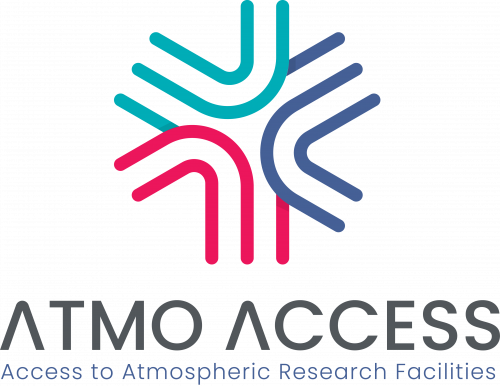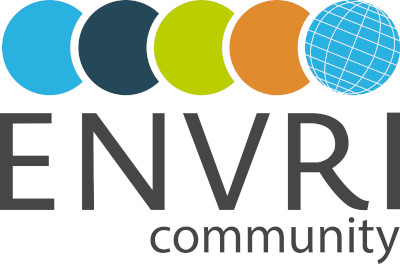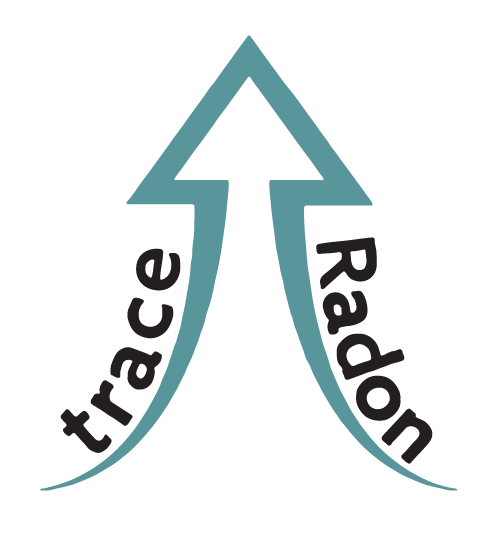ATMO-ACCESS

ATMO-ACCESS is the organized response of distributed atmospheric research facilities for developing a pilot for a new model of Integrating Activities.
The project will deliver a series of recommendations for establishing a comprehensive and sustainable framework for access to distributed atmospheric Research Infrastructures (RI), ensuring integrated access to and optimised use of the services they provide.
ATMO-ACCESS mobilizes extensive resources in the atmospheric RIs communities to engage into harmonizing access procedures in relation to policies, financial regulations and conditions for access. It will develop and test innovative modalities of access to facilities and complementary and more advanced services, including digital services, developed as part of cross-RI efforts.
ATMO-ACCESS will open physical and remote access to 43 operational European atmospheric research facilities, including ground-based observation stations, simulation chambers, but also mobile facilities and central laboratories that are fundamental elements in distributed RIs. Innovative cross-RI cloud services, addressing the management of data produced via access and the use of new, integrated data products, but also virtual tools for training, are offered through virtual access to RI data centres.
All work in ATMO-ACCESS integrates experiences from past access programs, thus, synergistically streamlining the work and avoiding duplication of efforts.
ATMO-ACCESS will continuously engage with users and with national and international stakeholders to propose optimal conditions for a coherent and effective framework of access that has been sufficiently tested and is supported by the relevant user and stakeholder groups to establish and ensure the long-term sustainability of access with the European RI landscape.
More information: https://www.atmo-access.eu/
PAUL -ICOS Cities

The Pilot Application in Urban Landscapes towards integrated city observatories for greenhouse gases (PAUL) project supports the European Green Deal by creating capabilities to observe and verify greenhouse gas emissions from densely populated urban areas across Europe.
Cities are recognized as important anthropogenic greenhouse gas emission hotspots and therefore play a significant role in any emission reduction efforts.
The PAUL project aims to increase our understanding of specific needs of greenhouse gas emission assessment in urban environment; it compares available and novel observational approaches and implements an integrated concept for a city observatory, providing unique data sets that feed diverse modelling approaches, scientific studies and will be the base of services towards the city administrations. A specifically innovative approach is the co-design of services, models and observations between city administrators and scientists from multiple disciplines including social and governmental sciences.
The PAUL co-design approach will explore the needs of the cities and combining these with the scientific outcomes. This allows to introduce smart services to the cities, supporting evidence-based decisions on climate action and strategic investments.
More information: https://www.icos-cp.eu/projects/icos-cities-project
OBS4CLIM

OBS4CLIM is the joint effort for innovation of the three French components of the European Research Infrastructures (RI) in the atmospheric domain: the ESFRI Project ACTRIS, the ESFRI Landmark IAGOS, and the atmospheric component of ESFRI Landmark ICOS.
OBS4CLIM develops a joint strategy for investment and service developments to reinforce the integration of “atmosphere RIs” and their synergies via e.g., innovation, joint utilization of equipment and harmonization of access conditions.
OBS4CLIM is, thus, the EquipEx "atmosphere" project of the entire community concerned at a national level, and will enable the three French mirror RIs (ACTRIS-FRANCE, IAGOS-FRANCE, ICOS-FRANCE) to respond to the new challenges posed for Earth observation and provide their users with qualified and relevant data sets, as well as innovative services. OBS4CLIM provides atmospheric RIs with adequate investment to keep serving the users at the highest level of quality over the next 15 years and to engage in developments to further respond to emerging needs.
OBS4CLIM will offer unique services in order to remain a place for innovation in research and technology. It is integrated into a mature framework for access, recognized at both national and international levels, that includes physical and remote access to atmospheric facilities as an integral part of the RI service portfolios.
OBS4CLIM will further strengthen the capacity to translate the wealth of climate and atmospheric data into data services that will drive innovation and help decision-makers find ways to achieve a clean-air, climate-resilient, and low-carbon society.
More information: https://www.obs4clim.fr/
TRACE

The purpose of the TRAcking Carbon Emissions programme (TRACE) program is to develop new technologies and methods for high-accuracy monitoring of greenhouse gas (GHG) emissions, for tracking the effectiveness of emissions reduction policies in the context of the Paris Agreement on Climate.
The project will perform the research needed by corporate partners Thales Alenia Space, SUEZ and TOTAL to match their products to new demands for improved greenhouse gases emissions measurement methods, going from the scale of an industrial site up to national and global GHG budgets.
The project addresses three main objectives : 1) creating a long-term partnership between three major industry players and leading researchers, 2) training young scientists and corporate staff, 3) developing innovative methods to quantify and understand greenhouse gases emissions to support effective mitigation actions in different economic sectors, with a special focus on oil and gas upstream activities and waste and waste-water management for CH4 emissions, and on new spaceborne observations to monitor anthropogenic emissions from the scale of point sources to the entire globe.
More information: https://trace.lsce.ipsl.fr/index.php
ENVRI-FAIR (ENVironmental Research Infrastructures building Fair services Accessible for society, Innovation and Research)

ENVRI-FAIR is the connection of the ESFRI Environmental Research Infrastructures Cluster (ENVRI) to the European Open Science Cloud (EOSC). Participating research infrastructures (RIs) from the environmental domain cover the Atmosphere, Marine, Solid Earth and Biodiversity/Ecosystems sub-domains and hence the Earth system in all its complexity.
The main objective is that by the end of the proposed project, all participating IRs will have built a set of FAIR data services that improve the efficiency and productivity of researchers, support innovation, enable data-driven decisions and knowledge and connect the ENVRI cluster to the EOSC.
This objective is achieved by: (1) well-defined community policies and standards concerning all stages of the data lifecycle, aligned with wider European policies, as well as international developments; (2) each participating IR will have sustainable, transparent and auditable data services, corresponding to each stage of the data lifecycle and in accordance with the principles of FAIR. (3) the proposed work focuses on the implementation of prototypes to test pre-production services in each IR; the catalog of prepared services is defined for each IR independently, depending on the maturity of the IRs concerned; (4) The full set of thematic data services and tools provided by the ENVRI cluster are exposed in the EOSC Service Catalogue.
More information: https://envri.eu/home-envri-fair/
TraceRadon

The overall aim of this project is the development of metrological capacity (reference monitors, transfer standards and robust methodology) to measure low levels of radon in the environment, which can be used to determine emission reduction strategies of greenhouse gases and improve radiation protection of the general public.
More information: http://traceradon-empir.eu/
